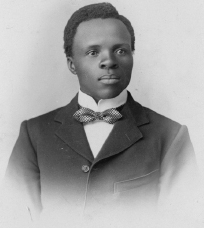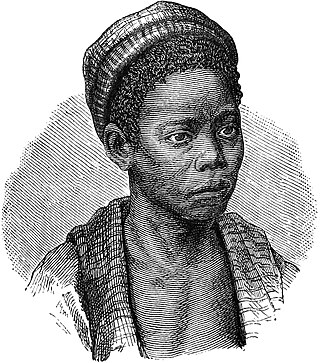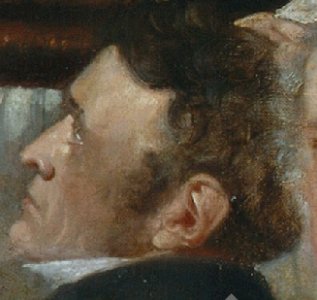Related Research Articles

Botswana, officially the Republic of Botswana, is a landlocked country in Southern Africa. Botswana is topographically flat, with approximately 70 per cent of its territory being the Kalahari Desert. It is bordered by South Africa to the south and southeast, Namibia to the west and north, Zambia to the north and Zimbabwe to the northeast. Being a country of slightly over 2.4 million people and roughly the size of France, Botswana is one of the most sparsely populated countries in the world. It is essentially the nation-state of the Tswana people, who constitute 70 per cent of the population.

Tswana, also known by its native name Setswana, and previously spelled Sechuana in English, is a Bantu language spoken in and indigenous to Southern Africa by about 8.2 million people. It is closely related to the Northern Sotho and Southern Sotho languages, as well as the Kgalagadi language and the Lozi language.

Mahikeng, formerly known as Mafikeng and alternatively known as Mafeking, is the capital city of the North West province of South Africa.

Solomon Tshekisho Plaatje was a South African intellectual, journalist, linguist, politician, translator and writer. Plaatje was a founding member and first General Secretary of the South African Native National Congress (SANNC), which became the African National Congress (ANC). The Sol Plaatje Local Municipality, which includes the city of Kimberley, is named after him, as is the Sol Plaatje University in that city, which opened its doors in 2014.

The Tswana are a Bantu ethnic group native to Southern Africa. Ethnic Tswana made up approximately 85% of the population of Botswana in 2011.

The Bechuanaland Protectorate was a protectorate established on 31 March 1885 in Southern Africa by the United Kingdom. It became the Republic of Botswana on 30 September 1966.

Bethulie is a small sheep and cattle farming town in the Free State province of South Africa. The name meaning chosen by God was given by directors of a mission station in 1829 which the town formed around. The mission building is the oldest settler built building still standing in the Free State. The town was also home to one of the largest concentration camps run by the British during the Boer War. The Dutch Reformed Church was built in 1862.

Campbell is a small town situated on the edge of the Ghaap Plateau in the Northern Cape province of South Africa. It is located 48 km east of Griquatown on the N8 road. It was originally known as Knovel Valley and then Groote Fontein, but was renamed in honour of the Reverend John Campbell who visited the Cape Colony in 1813.

Robert Moffat was a Scottish Congregationalist missionary to Africa from 1817–1870. Moffat began his missionary career in South Africa at the age of twenty-one. He was married to Mary Moffat. Their daughter was Mary Moffat Livingstone and their son-in-law was David Livingstone, who often worked with Moffat and his missionary efforts at various stations in southern Africa While doing missionary work at the mission at Kuruman, Moffat was the first to translate and have the Bible printed into the Sechuana language. While in Africa, Moffat devoted much of his time preaching the gospel and discussing the Bible, and also taught many of the natives how to read and write. Moffat's missionary career in Africa spanned a total of fifty-four years.

The Sotho-Tswana, also known as the Sotho or Basotho, although the term is now closely associated with the Southern Sotho peoples are a meta-ethnicity of Southern Africa. They are a large and diverse group of people who speak Sotho-Tswana languages. The group is predominantly found in Botswana, Lesotho, South Africa, and the western part of Zambia. Smaller groups can also be found in Namibia and Zimbabwe.

Sechele I a Motswasele "Rra Mokonopi" (1812–1892), also known as Setshele, was the ruler of the Kwêna people of Botswana. He was converted to Christianity by David Livingstone and in his role as ruler served as a missionary among his own and other African peoples. According to Livingstone biographer Stephen Tomkins, Sechele was Livingstone's only African convert to Christianity, even though Livingstone himself came to regard Sechele as a "backslider". Sechele led a coalition of Batswana in the Battle of Dimawe in 1852.
The Berlin Missionary Society (BMS) or Society for the Advancement of evangelistic Missions amongst the Heathen was a German Protestant (Lutheran) Christian missionary society that was constituted on 29 February 1824 by a group of pious laymen from the Prussian nobility.
Phokeng is a town in Rustenburg of the North West province of South Africa. It is the capital of the Royal Bafokeng Nation. Historically, it was known as Magatostad among white South Africans.
Jean Pierre Pellissier was a missionary from the Paris Evangelical Missionary Society to Southern Africa.

John Harfield Tredgold was an English chemist in the Cape Colony in Africa. He held a number of voluntary roles including Secretary of the British and Foreign Anti-Slavery Society. The suburb of Cape Town called Harfield drew its name from Tredgold's middle name.
Pniel was a mission station established by the Berlin Missionary Society on the Vaal River between modern Barkly West and Kimberley, South Africa, in 1845.

John Campbell, was a Scottish missionary and traveller.

Reverend Johann Heinrich Schmelen, born Johann Hinrich Schmelen was a German missionary and linguist who worked in South Africa and South-West Africa. Traveling through the area of today's northern South Africa and central and southern Namibia he founded the mission stations at Bethanie and Steinkopf and discovered the natural harbour at Walvis Bay. Together with his wife Zara he translated parts of the Bible into Khoekhoegowab (Damara/Nama) and published a dictionary.
Hans Christian Knudsen was a Norwegian missionary and painter. He was a pioneer Rhenish Missionary pioneer and scholar of Khoekhoe.

Batswana nationality law is regulated by the 1966 Constitution of Botswana, as amended; the Citizenship Act 1998, and its revisions; and international agreements entered into by the government of Botswana. These laws determine who is, or is eligible to be, a national of Botswana. The legal means to acquire nationality, formal legal membership in a nation, differ from the domestic relationship of rights and obligations between a national and the nation, known as citizenship. The Botswana nationality is typically obtained on the principle of jus sanguinis, i.e. by birth to parents with Botswana nationality. It can be granted to persons who have lived in the country for a specific period of time, who have performed distinguished service to the nation or who have an affiliation to the country through naturalisation.
References
- 1 2 3 4 Morris, D. 2001. Who was Richard Miles? Now and Then: Newsletter of the Historical Society of Kimberley and the Northern Cape 8(1):6.
- ↑ Morris, D. Richard Miles: Motswana preacher "to the native tribes beyond the border,
- 1 2 Ashworth, M.G. 1974. The life and fortunes of John Pocock of Cape Town, 1814-1876; Tredgold, A.1990. The Ardernes and their garden. Cape Town: Arderne Book Trust.
- ↑ Sibree, J. 1923. A register of missionaries, deputations, etc from 1796 to 1923. London: LMS.
- ↑ Lye, W.F. 1975. Andrew Smith's Journal. Cape Town: A.A. Balkema. [This source mistakenly identifies the LMS missionary for the Motswana interpreter].
- 1 2 3 Schoeman, K. 1985. Die huis van die armes: die Berlynse Sendinggenootskap in die OVS, 1834-1869. Kaapstad: Human & Rousseau.
- ↑ Pellissier, S.H. 1956. Jean Pierre Pellissier van Bethulie. Pretoria: Van Schaik.
- ↑ Lewis, C & Edwards, G.E. 1934. Historical records of the Church of the Province of South Africa. London: SPCK.